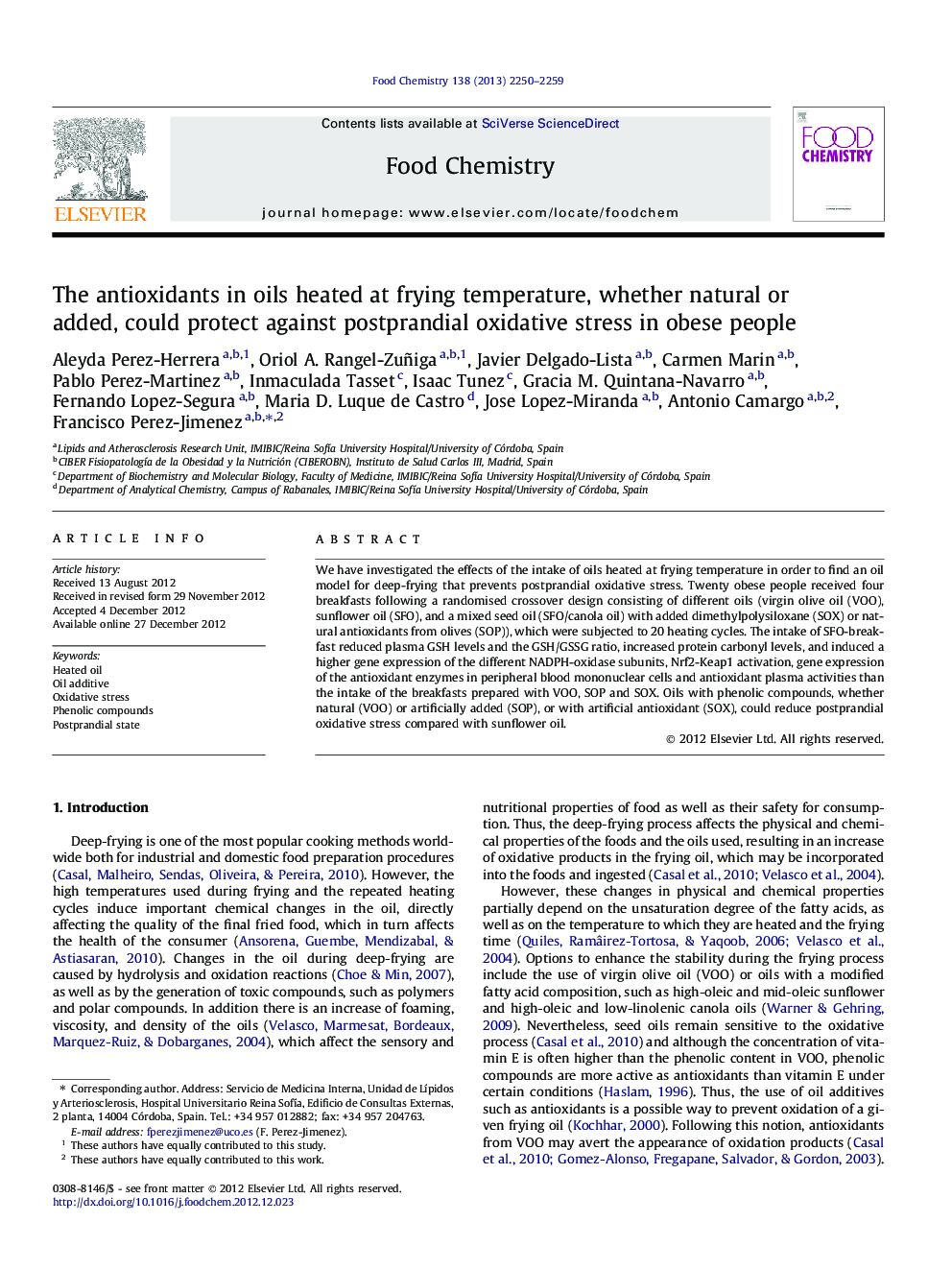| Article ID | Journal | Published Year | Pages | File Type |
|---|---|---|---|---|
| 1185508 | Food Chemistry | 2013 | 10 Pages |
We have investigated the effects of the intake of oils heated at frying temperature in order to find an oil model for deep-frying that prevents postprandial oxidative stress. Twenty obese people received four breakfasts following a randomised crossover design consisting of different oils (virgin olive oil (VOO), sunflower oil (SFO), and a mixed seed oil (SFO/canola oil) with added dimethylpolysiloxane (SOX) or natural antioxidants from olives (SOP)), which were subjected to 20 heating cycles. The intake of SFO-breakfast reduced plasma GSH levels and the GSH/GSSG ratio, increased protein carbonyl levels, and induced a higher gene expression of the different NADPH-oxidase subunits, Nrf2-Keap1 activation, gene expression of the antioxidant enzymes in peripheral blood mononuclear cells and antioxidant plasma activities than the intake of the breakfasts prepared with VOO, SOP and SOX. Oils with phenolic compounds, whether natural (VOO) or artificially added (SOP), or with artificial antioxidant (SOX), could reduce postprandial oxidative stress compared with sunflower oil.
► We investigated the biological effect of the intake of frying oils with different antioxidants. ► We aimed to find an oil model for deep-frying that prevents postprandial oxidative stress. ► Oils with phenolic compounds reduce postprandial oxidative stress compared with sunflower oil. ► Oils with natural antioxidant provides a ‘‘healthier” alternative for frying.
